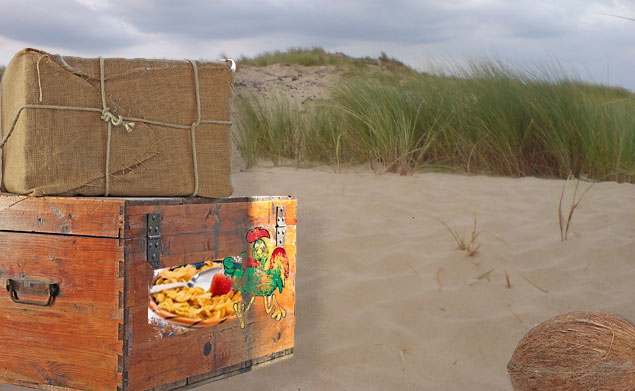I remember how special I felt when at the age of 12, I was told that I will be moving to Toronto, Canada. I was one of the lucky few who had the opportunity to go ‘ah foreign’ and live a life of luxury! I would get to eat all the fancy foods and cereals I saw on TV. My mouth watered at the very thought of having cornflakes with strawberries (Imagine my disappointment when I realized that cornflakes did not come with the strawberries already inside!) Forget having fried plantain, mango, coconut water and scalded goat milk for breakfast! Kunalokho, I wanted to have apples, grapes, KFC and all those other fancy foods and fruits I saw on TV. While I was more occupied with the superficiality and materiality of moving to Canada, my aunt explained that by moving, I would have access to a world class education and thus, the opportunity to create a better life for myself.
For the first 5-10 years of my life, I embraced Canada and accepted it as my new homeland. Thoughts about ‘back home’ were few and far in between. My expectations and aspirations followed those of the ordinary Canadian teenager. I would go to university, get a well paying job with good benefits and a nice retirement package. My life was planned and as long as things panned out like they were suppose to, I would be set! Eventually I would achieve all of my goals. I completed my undergrad at one of Canada’s top universities; secured an indeterminate position with the government where the benefit and retirement packages are the best in the entire country and yet, I was not satisfied.
The things that once made me happy; the food, the luxuries of automobiles, TV and designer clothing no longer filled that void. I began to hate the food because I learned that most of it is bad for me and yearned so desperately for a sweet grafted mango and some coconut juice. I cherished the taste of some ground provisions, coconut dumplings and saltfish. I wanted to be able to release all inhibitions without fear or judgement when I ‘wuk up me waist’ to the sweet sounds of soca music. To be kissed by the warmth of the sun on a daily basis and feel the warm sand sifting through my toes was more pleasant than heaving to live through the cold and trek through the snow.
After 13 long years, I returned ‘back home.’ Ironically, my return only took place because my planned trip to Tanzania fell through. Before I arrived, I thought about how bad my country would look. Rampant poverty, people bathing in the rivers and cooking outside on wooden stoves. I didn’t know if I could adapt to such an atmosphere having lived in Canada for all of these years.
As I stepped off the plane, I was greeted by the soothing melodic sounds of the steel pan. It was carnival season and the steel pan players were at the airport to greet incoming visitors. This was only the beginning of Vincentian hospitality. It didn’t take long for me to fall back in love with my homeland. I fell in love with culture, music, food, community, sincerity, relaxation and the list goes on. If being evaluated against North American standards, things moved slowly; however, they got done eventually and the world around us never crumbled.
While I am presenting a rather Utopian view of my country, the harsh realities did not escape my attention. There was poverty, frustrated unemployed youths and poor infrastructure. Nokho, the culture and people gave me hope and I saw the potential for growth. As a result, I started to create a ‘to do list’ of all the things I could do to help contribute to its development. I was disappointed at the fact that people relied heavily on imported foods and other products. People no longer cultivated food to sustain themselves. They were caught up in globalization and the need for overconsumption. I wanted to bring back agriculture and show my people the riches they possessed with their soil and weather.
I also thought about the fact that there were others like me who abandoned their homelands and whose expertise and drive can do so much in contributing to the development of their country but don’t. It is true that most of us who leave still help to sustain our families, and by the extension the economy, through remittances. Nokho, with a depleted skilled, educated workforce, development and growth becomes a difficult task.
Many countries in Africa and the Caribbean suffer from continual brain drain. Many young people leave their homelands in search of a better education, however, once this has been attained, many fail to return home and utilize their skills so that they can contribute to the development of their countries. The issue is so widespread that most African and Caribbean countries have spent thousands of dollars on research, trying to figure out how to curb the increase of migration flows. The issue of continual brain drain is so pronounced that It is estimated that in some countries, up to 70 per cent of tertiary-educated graduates migrate to more ‘developed countries.
Past leaders such as Marcus Garvey have long lectured about the need for a mass exodus or movement of all African descendents back to their homelands as a means to ensuring economic empowerment and prosperity. After my experience, I would say that maybe this is not such a bad idea. I do not want to be misinterpreted nor come across as being ungrateful. I am very grateful for the opportunities and experiences living in one the the world’s most developed and multicultural cities has afforded me. In fact, I would be one of the first to proclaim that Toronto is one of the greatest cities in the world. I also acknowledge that most of us have worked very hard, if not harder than most, to build the lives we have abroad. Nokho, think of the added benefits you would gain from your efforts, had they been put into your homeland.
Eshukunyiswe nefilosofi Bob Marley sika "Akekho kodwa ngokwethu can khulula ingqondo yethu ', Orijin kuyinto eliyingqayizivele 'Culture Brand "oxhumanisa yonke inzalo African ndawonye ngokusebenzisa kungcono Fashion brand and thought provoking magazine to influence our lifestyles world wide….Don’t just WEAR Culture, Yabelana Culture
Posts Latest by Nekita (bheka konke)
- Ngaphambi Rihanna kwakukhona Grace Jones - December 27, 2014
- Marimba: Expression of Freedom, kodwa my Afro-Ecuadorians… - December 25, 2014
- Ngubani Eyenza Claim Zokuba the Capital Reggae of the World? - December 24, 2014






